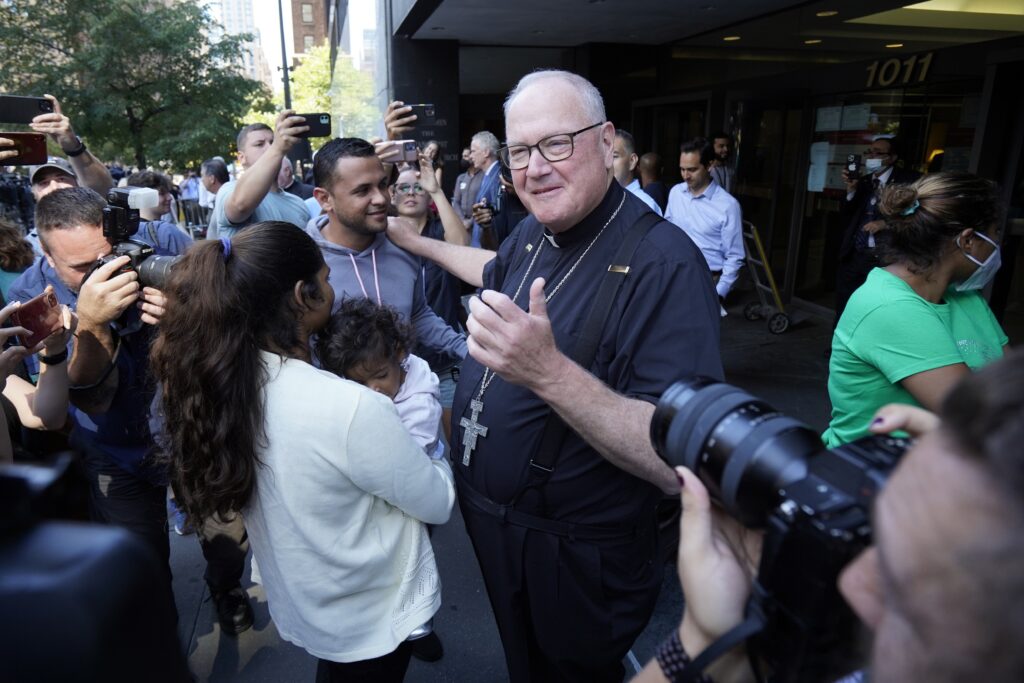
Cardinal Timothy M. Dolan: Did We Go Too Far?
By: Our Sunday Visitor
“I find myself undertaking an examination of conscience: did we as a Church, here in the United States, go too far in obeying all the restrictions imposed during the COVID pandemic, resulting in a lack of pastoral care for those sick?”

While I was recently preparing my sermonette for Mass on the feast of St. Aloysius Gonzaga, I was reminded he died at only 23, having contracted the virus while ministering to victims of the plague in Rome.
Then, on my radio show, I hosted “Conversation with Cardinal Dolan” on The Catholic Channel of Sirius XM, talking with Francis Malone, the bishop of Shreveport, Louisiana, about the devotion to the “Shreveport Martyrs” — five young priests from France who had come to serve in Louisiana and who, in 1873, died from the closeness of bringing care to those suffering from a pandemic there, which infected them all as well.
They are now candidates, if it be God’s will, for beatification and canonization.
Now I find myself undertaking an examination of conscience: did we as a Church, here in the United States, go too far in obeying all the restrictions imposed during the COVID pandemic, resulting in a lack of pastoral care for those sick?
I can only speak for this archdiocese, where we were scrupulous in heeding the almost daily alerts about ways to protect our people. Bravo! I am glad we were attentive, and realize that we have a moral duty to listen to prudent medical cautions and protect our people, especially our elders and those in fragile health. Our civil leaders — federal, state, and local — applauded our attention to the strict protocol.
However, I ask myself — were we equally obedient to the biblical commands to be near the sick, to comfort the dying, to reverently bury the dead, and, for us deacons, priests, and bishops, to bring the sacraments and the Church’s prayerful accompaniment to those very sick from the virus?
I remember receiving a call from a wonderful sister in one of our nursing facilities.
“Cardinal Dolan,” the superior began, “I’m only calling out of courtesy, not to ask your permission. The state inspectors just left us, and gave us an A+ in our sanitary precautions. The only order they gave us is that we have to halt our custom of circling the bed of our residents very near death, to keep them company, praying with and for them on their final journey.”
She paused and concluded, “We’re disregarding that directive. We took a vow to do this; we have a duty; we must, and want to do this!”
Brava!
Many of our priests were innovative, and courageous in the pastoral care given to our elders, housebound, and parishioners suffering in hospitals. Bravo!
But, I nag myself, did we do enough? Did we raise the point that spiritual consolation given to patients was as essential as the bodily care? Did we insist that our churches needed to remain open for Mass and the sacraments, with all the precautions possible, instead of locking our doors?
I sure appreciated it, and supported him, when my neighbor, Nicholas Di Marzio, then bishop of Brooklyn, took the governor to court. If liquor stores and beauty parlors can open, he argued, so can our houses of worship. We won.
It wasn’t “safe” for Father Damien, a priest from Belgium, to travel to the island of Molokai to minister to the inhabitants of that island suffering from Hansen’s disease – leprosy – but go there he did, even though he knew it could, and did, lead to him catching the disease that ultimately killed him. It’s also sure not safe for a chaplain in the military to crawl to anoint a severely wounded soldier on the front lines, but he sure does it.
A big part of me remains grateful that we did more than our part in obeying the severe restrictions leveled during the pandemic and for the careful vigilance rendered by our public servants.
Yet, another part of me worries that future decades will not look back at us with the same admiration we now have for Saint Aloysius Gonzaga, Saint Damien of Molokai, and those young “Martyrs of Shreveport.”

